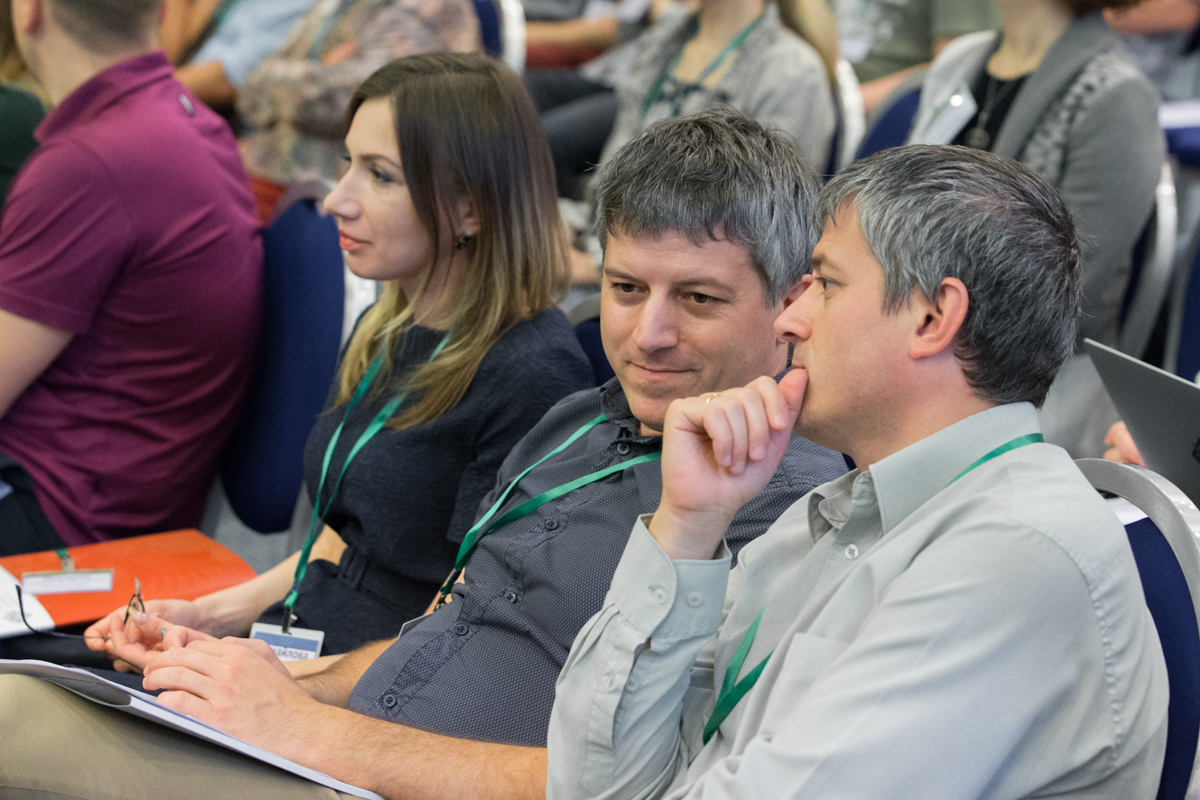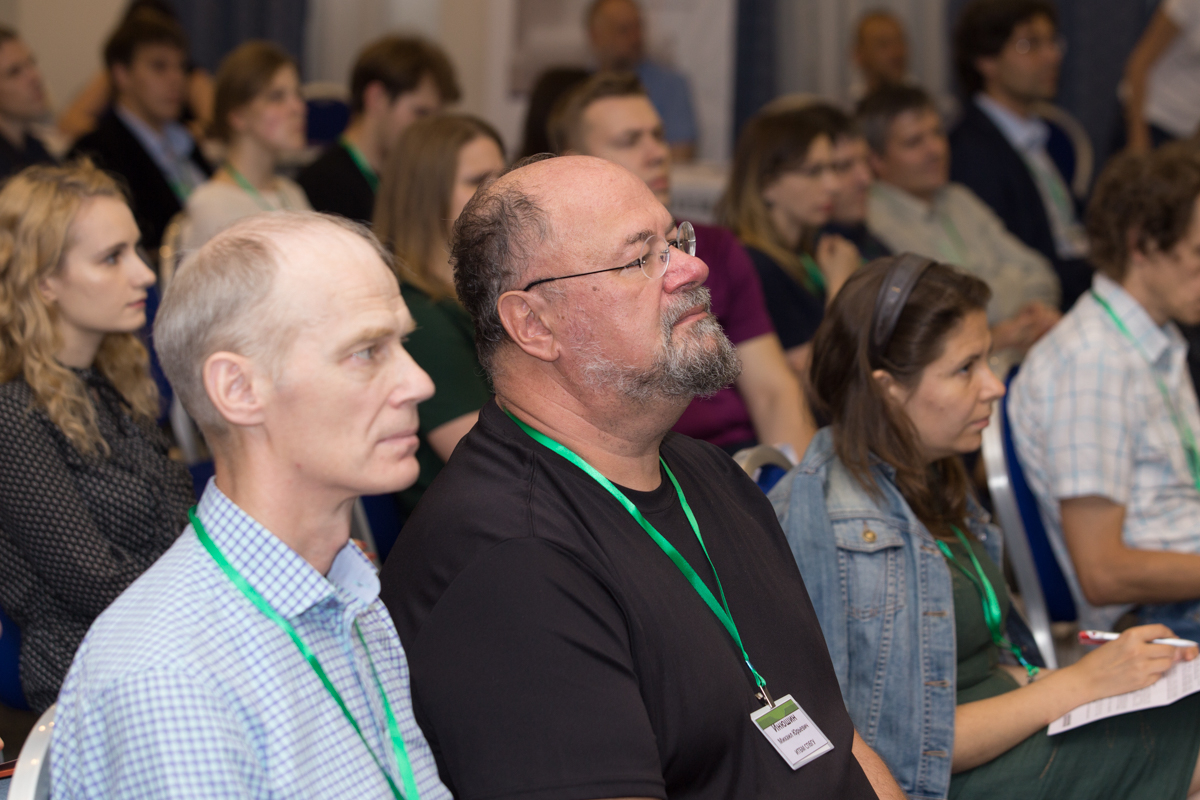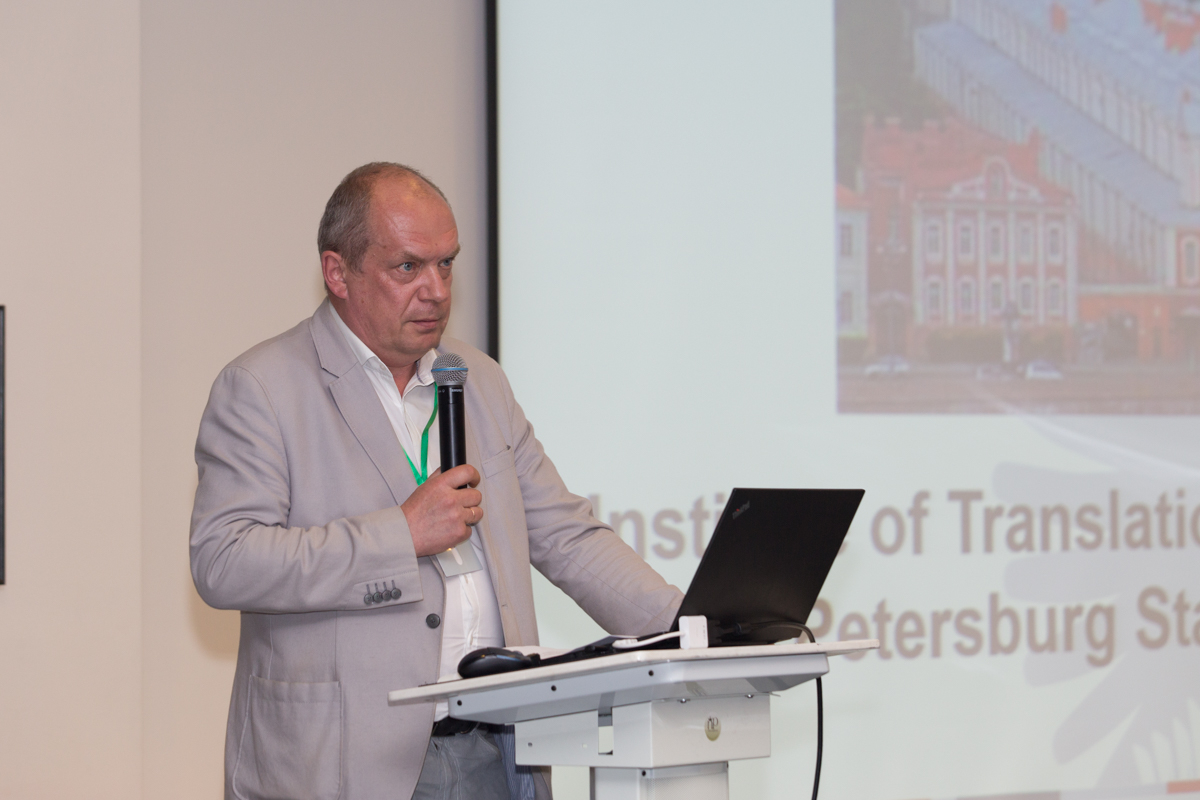Knockout mice and traps for viruses: a conference on translational biomedicine was held at St Petersburg University
More than 120 leading experts in the field of biology, chemistry and genetics from all over the world participated in the IV annual conference of the Institute of Translational Biomedicine of St Petersburg University "Current issues of translational biomedicine - 2018". The scientists discussed the latest methods of treating tuberculosis, the prospects for combating cancer and HIV infection, as well as other key areas for personal medicine development.
Opening the conference, Sergey Aplonov, Vice-Rector for Science of St Petersburg University, said that biomedicine and human health are one of the priority areas of the University's development programme. In recent years, several major projects in this field have been launched at St Petersburg University. So, in 2015 the Institute of Translational Biomedicine was created, and at the beginning of this year a new laboratory "Biohybrid Technologies for Modern Medicine" was opened on a competitive basis. It is headed by the Professor of Art at the University of Helsinki Arto Urtti, a world-class expert in the field of pharmacology. Also in 2018, The Medical and Surgical Centre named after Pirogov became a part of St Petersburg University, which led to the creation of a new type of university clinic.
"We are introducing a system of continuous medical education, we are constantly working to improve the research infrastructure in this area, and the results of this purposeful approach do not keep us waiting long. Thus, over the past four years, the number of publications in leading academic publications on this topic has grown by 218%, and our students and graduate students regularly win at international Olympiads in medicine" said Sergey Aplonov.
The report on transgenic models of human diseases was made by Raul Gaynetdinov the Director of the Institute of Translational Biomedicine of St Petersburg University. He spoke about an important direction of research of the University scientists - the study of dopamine neurotransmission.
Dopamine is a chemical compound that is synthesised in various areas of the brain, endocrine glands, kidneys and other tissues and performs many tasks in the body. A reduced level of dopamine can disrupt the regulation of movement, an increased level can cause hyperactivity, physical and mental arousal.
A knockout mouse has especially been bred for works in this area: when the molecule of the dopamine transporter is "switched off", the dopamine level rises, the animal becomes hyperactive, and with an additional cut-off of dopamine synthesis, the hormone ceases to circulate, and the activity of the animal decreases drastically. For 20 years, new medications have been tested on this model that can potentially relieve dopamine deficiency, more than a hundred substances have been studied aimed at suppressing dopamine hyperactivity. However, recently, rats have become used as a model organism: their behaviour is more developed, and a larger brain size allows to study small structures.
Another area of work of scientists is the pharmacology of trace amine receptors (TAAR). These are nine genes that were discovered only in 2001, and their function in the human body is still unknown. Scientists of St Petersburg University created a unique collection of TAAR-knockout mice. There are no analogues to it in the world, and while other laboratories study the first receptor, the university scientists have already finished the work on a model organism with a knockout of gene TAAR8.
In 2014, St Petersburg University received a grant from the Russian Scientific Fund (RSF) for the development of comprehensive scientific programmes. In 2015 the Institute of Translational Biomedicine of St Petersburg University started its work. Today it includes 11 laboratories whose employees and managers have already published 257 scientific articles with a common impact factor of 1221.
The Head of the Laboratory of Chemical Pharmacology of St Petersburg University Mikhail Krasavin spoke about the development of methods of new compounds synthesis. As an example, he cited one of the methods on which scientists have been working in recent years - the reaction of Castagnoli - Cushman, which allows the synthesis of various compounds. It plays a key role in the project aimed at destroying p53 and MDM2 proteins interaction which is important from the point of view of oncology. "In normal cells, the p53 protein is expressed at a fairly low level and is well eliminated from circulation, but in almost half of the cancers it is mutated. The therapeutic approach, based on small molecules, is that we destroy protein-protein interactions and restore non-oncogenic levels of p53," the scientist explained.
- Why is it interesting as an object for the intrusion of small molecules and in general presents a kind of challenge for medical chemists? The point is that such an interaction is an extremely difficult target, and it has traditionally been thought that it is impossible to select a small molecule for it." As a result, nine active compounds have been synthesised, two of which turned out to be similar in structure.
An active work on spirocycles, compounds containing two cycles with one common atom, is also being done in the laboratory. Over the past three years, a large number of compounds have been synthesised and studied in the field of infectious diseases, in particular tuberculosis. In collaboration with St Petersburg microbiologists, scientists at St Petersburg University are testing compounds not only on drug-sensitive but also quite resistant strains.
Employees of the Laboratory of Biological Testing of Modern Drug Delivery Systems of St Petersburg University under the guidance of Tatyana Tennikova are working on creating biodegradable nano-constructions that allow to block pathogens, as well as sending medicinal compounds to necessary tissues and even cells. For many years, polymeric molecules have been used for this purpose, but now they are replaced by nanocontainers, in which a sufficiently high concentration of useful contents can be created.
Any polymer particle is a foreign object for the body, so scientists are working on creating special cells that can deliver active substances to a particular organ or tissue, acting as "living containers" for the drug.
"Just a decade ago, smart polymers were considered to be a great achievement, and now they are becoming more popular, because they dramatically increase the efficiency of systems used as delivery or traps," said Tatyana Tennikova, Head of the laboratory, Professor at St Petersburg University.
- In what projects are nano-constructions used? These can be virus traps: for example, HIV and hepatitis C. Containers can fight inflammatory diseases or with oncology, provide targeted delivery and controlled release of chemotherapy drugs, help to conduct gene therapy. We have already accumulated enough experience, each in his own direction, it seems to me that now we need to create a cross-cutting project uniting all the parts of the work. This would be a significant contribution to Russian medicine."
The conference "Current issues of translational biomedicine - 2018" at St Petersburg University has become a platform for communication and exchange of experience of leading scientists. "Biology is becoming more and more computational: some experts believe that data analysis already occupies about 30% of it. Therefore, I was interested to listen to reports to see to what extent this data analysis in St Petersburg needs integration into different laboratories," said Pavel Pevzner, a Professor at the University of California.
Following the results of the conference, I would propose to launch a project to search for new antibiotics, as well as to conduct research related to reading a person's microbiome: this is a very important area for modern medicine, in particular, for studying the diseases of the gastroenterological tract."




